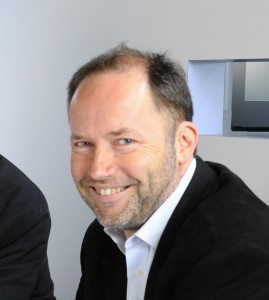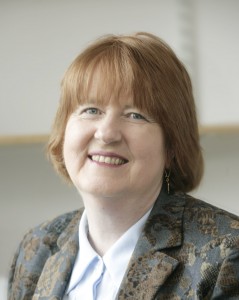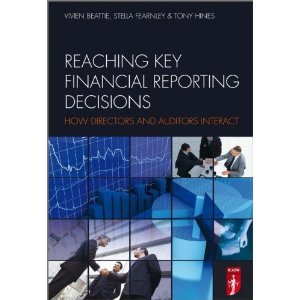 Professor Martin Kretschmer’s research into private copying and fair compensation is at the centre of a discussion at an Intellectual Property Office event next week.
Professor Martin Kretschmer’s research into private copying and fair compensation is at the centre of a discussion at an Intellectual Property Office event next week.
‘Informing Copyright Policy in the UK’ takes place on Wednesday 19 October, in partnership with The Big Innovation Centre.
It is an opportunity for copyright owners, technology companies, consumers, academics and policy makers to discuss exactly what Kretschmer’s findings mean for UK policy making.
The influential research paper, entitled ‘Private Copying and Fair Compensation: A comparative study of copyright levies inEurope’, offers the first independent empirical assessment of the European levy system.
The research consolidates evidence on levy setting and collection, as well as reviewing the scope of consumer permissions associated with levy payments. Professor Kretschmer reports the results of three product level studies – printer / scanners, portable music / video / game devices and tablet computers – and analyses the relationship between VAT, levy tariffs and retail prices in 20 levy and non-levy countries.
The other paper up for discussion is ‘Changing Business Models in the Creative Industries: The Cases of Television, Computer Games and Music, by Dr Nicola Searle from theUniversityofAbertay,Dundee.
More information at the event can be found here.
Professor Kretschmer’s key findings:
– There are dramatic differences between countries in the methodology used for identifying leviable media and devices, setting tariffs, and allocating beneficiaries of the levy. These variations cannot be explained by an underlying concept of economic harm to right holders from private copying.
– The scope of consumer permissions under the statutory exceptions for private copying within the EU does not match with what consumers ordinarily understand as private activities.
– In levy countries, the costs of levies as an indirect tax are not always passed on to the consumer. In competitive markets, such as those for printers, manufacturers of levied goods appear to absorb the levy. There appears to be a pan-European retail price range for many consumer devices regardless of levy schemes (with the exception ofScandinavia).
– In non-levy countries, such as theUK, a certain amount of private copying is already priced into retail purchases. For example, right holders have either explicitly permitted acts of format shifting, or decided not to enforce their exclusive rights. Commercial practice will not change as a result of introducing a narrowly conceived private copying exception.
– A more widely conceived exception that would cover private activities that take place in digital networks (such as downloading for personal use, or noncommercial adaptation and distribution within networks of friends) may be best understood not as an exception but as a statutory licence. Such a licence could include state regulated payments with levy characteristics as part of a wider overhaul of the copyright system, facilitating the growth of new digital services.
Links
Professor Martin Kretschmer’s academic profile
More publications by Professor Martin Kretschmer
CIPPM: Recent policy reports
 law and is author, co-author and editor of a number of books on Intellectual Property law. He was the Dean of the Faculty of Law, University of Edinburgh (1999-2003) and Director of the AHRC Centre for Studies in Intellectual Property and Technology Law (SCRIPT) (2002-2007). In 2010 Professor MacQueen took up an appointment as Scottish Law Commissioner (2010-2014).
law and is author, co-author and editor of a number of books on Intellectual Property law. He was the Dean of the Faculty of Law, University of Edinburgh (1999-2003) and Director of the AHRC Centre for Studies in Intellectual Property and Technology Law (SCRIPT) (2002-2007). In 2010 Professor MacQueen took up an appointment as Scottish Law Commissioner (2010-2014).




 Watch this excellent short video from BU’s
Watch this excellent short video from BU’s  Neelie Kroes, Vice-President of the European Commission responsible for the Digital Agenda, made her annual set piece speech at the Media Forum in Avignon, France on 19 November:
Neelie Kroes, Vice-President of the European Commission responsible for the Digital Agenda, made her annual set piece speech at the Media Forum in Avignon, France on 19 November: 
 Professor Martin Kretschmer’s
Professor Martin Kretschmer’s 
 Professor Stella Fearnley’s
Professor Stella Fearnley’s “Public discussion of corporate reporting and auditing is frustrated by the fact that directors and auditors debate issues and take decisions in private. The need to respect confidentiality means that policy makers and the public find insiders’ accounts of what happens bland and unconvincing. The resulting lack of public information is particularly dangerous at the present time when the financial crisis is prompting questions about whether new regulation is called for.”
“Public discussion of corporate reporting and auditing is frustrated by the fact that directors and auditors debate issues and take decisions in private. The need to respect confidentiality means that policy makers and the public find insiders’ accounts of what happens bland and unconvincing. The resulting lack of public information is particularly dangerous at the present time when the financial crisis is prompting questions about whether new regulation is called for.”
 Could good networking then be the secret to being a successful academic? On reflection it’s a good way to identify new ideas, new ways to transfer knowledge to a wider audience and new partners for bids Maybe talking to strangers, or at least new people, is good advice after all.
Could good networking then be the secret to being a successful academic? On reflection it’s a good way to identify new ideas, new ways to transfer knowledge to a wider audience and new partners for bids Maybe talking to strangers, or at least new people, is good advice after all.










 BU attendance at third annual GCPHR meeting in June
BU attendance at third annual GCPHR meeting in June Interactive Tangible and Intangible Heritage Applications – BU student work featured in new book chapter
Interactive Tangible and Intangible Heritage Applications – BU student work featured in new book chapter Second NIHR MIHERC meeting in Bournemouth this week
Second NIHR MIHERC meeting in Bournemouth this week MSCA Postdoctoral Fellowships 2025 Call
MSCA Postdoctoral Fellowships 2025 Call ERC Advanced Grant 2025 Webinar
ERC Advanced Grant 2025 Webinar Horizon Europe Work Programme 2025 Published
Horizon Europe Work Programme 2025 Published Horizon Europe 2025 Work Programme pre-Published
Horizon Europe 2025 Work Programme pre-Published Update on UKRO services
Update on UKRO services European research project exploring use of ‘virtual twins’ to better manage metabolic associated fatty liver disease
European research project exploring use of ‘virtual twins’ to better manage metabolic associated fatty liver disease